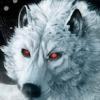There's a short but awesome article on writing conflict in video games here:
http://slashandz.blo...od-vs-evil.html
There's actually a bunch of game design articles on this site, but this seemed really relevant.
How to create conflict
I have to say that, given your sig, I find this plug awfully suspicious!
Life in the Dorms -- comedic point-and-click adventure game out now for Xbox Live Indie Games!
My portfolio: http://paulfranzen.wordpress.com/
Since we're on the subject, I will go to my grave citing that writing conventions do not change with medium. The only major change with games is you are writing interactive fiction. The article you posted (and possibly wrote, given your sig?) is sadly lacking in a lot of areas. Conflict is a lot more than the simple three one-dimensional situations you cited.
In terms of following the train of thought (choo choo!), game writing is, at the end of the day, writing. It follows the same conventions, the same plot curve, etc. For any writer, regardless of the medium they are working in, they should read the following books:
The Hero With a Thousand Faces by Joseph Campbell.
Every heard of The Hero's Journey/Monomyth? This guy coined it in this very book. If this book hadn't been written, Star Wars wouldn't exist right now, as Lucas based a massive part of his work on Campbell's work, and even consulted with Campbell while writing the basic overarching plot. Required reading for anybody who wants to get into writing in any fiction medium.
Save the Cat! by Blake Snyder.
This is a screenwriting book, and one of the best out there. If you were to choose only ONE book to read on my list, choose this one. Despite the format differentials, the overall message of this book translates to any medium in which creative writing is involved. Snyder breaks down the conventions of film stories into very distinct premise-based titular ideas, such as Monster in the House, Buddy Love, Whydunit, etc.
The Power of Myth by Joseph Campbell and Bill Moyers.
A transcript of Bill Moyers's famous interview with Campbell before his death in 1987. Campbell explains, often in-depth, all of his ideas and theories throughout his decades-long and impressive career. A great resource if you can't buy/find Hero with a Thousand Faces or if you want more explanation of Campbell's theories without buying every book he ever wrote (and there's a lot of them, so you'd be spending a lot of money).
They Say, I say by Gerald Graff and Cathy Birkenstein
Yes, this is a book on academic writing. No, I'm not joking when I say you need to read this if you want to be a writer. This tiny little important book (it's a minuscule 245 pages. Pretty damn small for a "college," book) will teach you everything you need to know about academic writing, that is everything you need to know about "proper," writing. Even if you never write an academic paper in your life, knowing how to do it will make you a better writer. In order to be a good writer in any medium, you need to know the rules of the art you are working within.
There are a ton of other books out there that will help anyone who wants to write in any medium. Additionally, there are many books and articles out there on how to apply the knowledge within these books to interactive fiction like video games.
In terms of following the train of thought (choo choo!), game writing is, at the end of the day, writing. It follows the same conventions, the same plot curve, etc. For any writer, regardless of the medium they are working in, they should read the following books:
The Hero With a Thousand Faces by Joseph Campbell.
Every heard of The Hero's Journey/Monomyth? This guy coined it in this very book. If this book hadn't been written, Star Wars wouldn't exist right now, as Lucas based a massive part of his work on Campbell's work, and even consulted with Campbell while writing the basic overarching plot. Required reading for anybody who wants to get into writing in any fiction medium.
Save the Cat! by Blake Snyder.
This is a screenwriting book, and one of the best out there. If you were to choose only ONE book to read on my list, choose this one. Despite the format differentials, the overall message of this book translates to any medium in which creative writing is involved. Snyder breaks down the conventions of film stories into very distinct premise-based titular ideas, such as Monster in the House, Buddy Love, Whydunit, etc.
The Power of Myth by Joseph Campbell and Bill Moyers.
A transcript of Bill Moyers's famous interview with Campbell before his death in 1987. Campbell explains, often in-depth, all of his ideas and theories throughout his decades-long and impressive career. A great resource if you can't buy/find Hero with a Thousand Faces or if you want more explanation of Campbell's theories without buying every book he ever wrote (and there's a lot of them, so you'd be spending a lot of money).
They Say, I say by Gerald Graff and Cathy Birkenstein
Yes, this is a book on academic writing. No, I'm not joking when I say you need to read this if you want to be a writer. This tiny little important book (it's a minuscule 245 pages. Pretty damn small for a "college," book) will teach you everything you need to know about academic writing, that is everything you need to know about "proper," writing. Even if you never write an academic paper in your life, knowing how to do it will make you a better writer. In order to be a good writer in any medium, you need to know the rules of the art you are working within.
There are a ton of other books out there that will help anyone who wants to write in any medium. Additionally, there are many books and articles out there on how to apply the knowledge within these books to interactive fiction like video games.
This topic is closed to new replies.
Advertisement
Popular Topics
Advertisement









